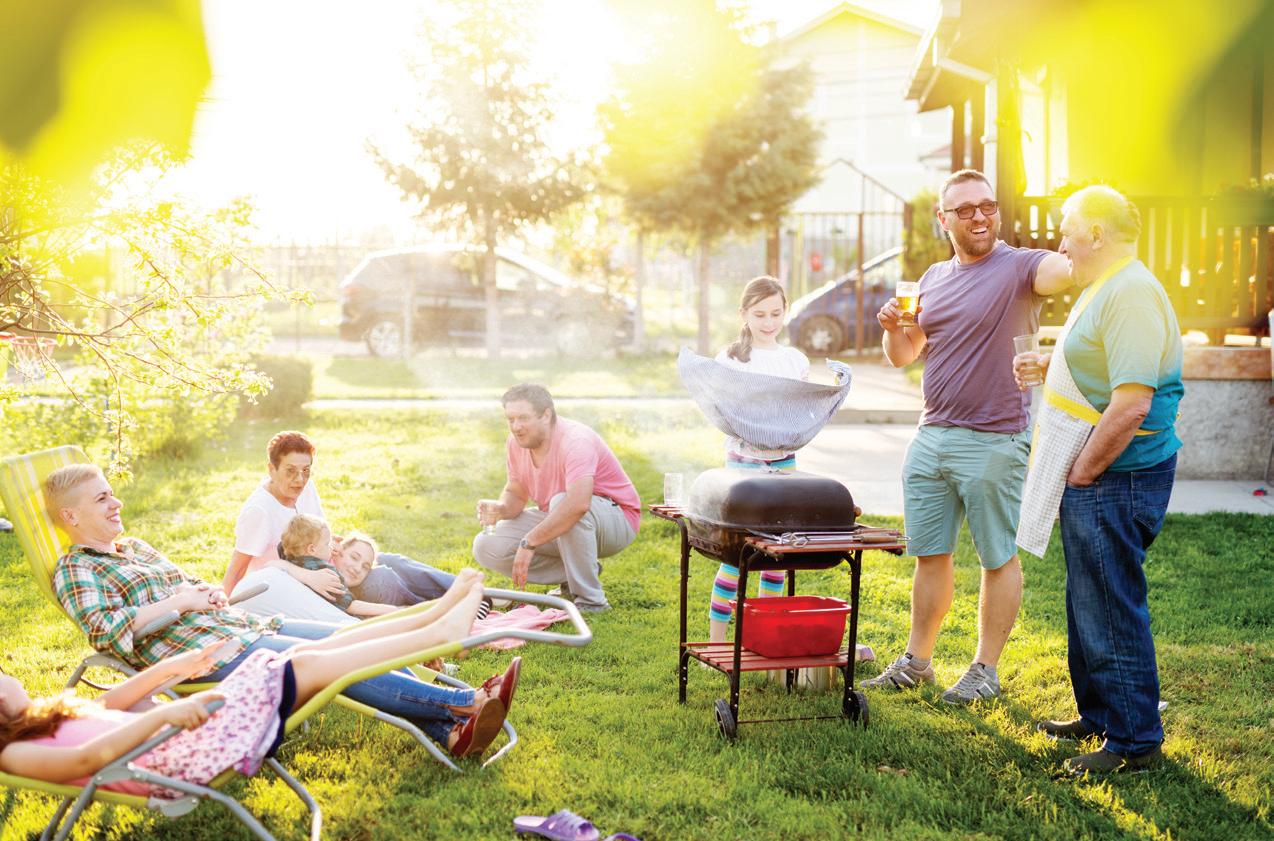
3 minute read
SUMMERTIME BARKING

By Kelley Bollen, MS, CABC • Certified Animal Behavior Consultant Principal Consultant – Kelley Bollen Consulting, LLC
Advertisement

It’s summertime and everyone is outside enjoying the wonderful weather. Summer often brings more visitors over for gatherings, more walkers past your house, and more BBQ’s in your neighbor’s backyard. All of these great summertime activities can trigger your dog’s barking behavior if you have a dog who tends to bark.
Many dogs bark when someone comes to the door - a behavior that could stem from excitement or territorial behavior. Some dogs bark when they see people and other dogs walk past your house or when there is a group of people milling around your neighbor’s yard for the same two reasons. If you have a barker who gets worse in the summer months you are probably struggling with how to get him to stop barking because this behavior is not only annoying to you, it can result in complaints from your neighbors.

Excitement barking can be triggered by anything your dog finds exciting. That could be a visitor at the door or people walking by your house. The best way to deal with this type of barking is to teach your dog a command to stop barking - I use the command “quiet”. To teach a quiet command you want to first pair the word “quiet” with the behavior you want - the dog shutting up. Dogs don’t understand English and they learn through association, so if you just yell “quiet” when your dog is barking you are pairing the word quiet with the barking which won’t help at all. To teach your dog that “quiet” means to stop barking you have to pair the word with that behavior. When your dog is barking - hold a tasty treat in front of his nose and when he stops barking say “quiet” (he should stop barking because he wants the treat). If you do this a dozen times you will successfully pair the word “quiet” with the actual behavior of not barking. After your dog knows what the word means you should be able to ask for “quiet” when he is barking and he should stop barking in anticipation of the treat. Reward your dog with the treat every time for a while to strengthen the response but once your dog knows the command well and reliably shuts up when he hears the word “quiet” you should only reward him with a treat randomly. This will keep the new learned behavior strong because random reinforcement works that way (think about slot machines). In between the times you give the treats, however, always praise your dog for doing as asked.
The other reason dogs bark in these situations stems from territorial behavior. Dogs are territorial animals and barking is one way to warn people away from their territory. For this type of barking I like to teach the dog a new association with the visitor or passersby. You want your dog to learn that visitors or passersby predict yummy treats. Have treats near the door or front windows and every time your dog sees a passerby or when there is someone at the door - throw a bunch of yummy treats on the floor. Even if she triggers to barking at first she will soon make the association that visitors and passersby predict treats thrown on the floor. Once that new association is made, instead of the visitor or passerby triggering barking behavior your dog will simply look at the floor for treats. This process will not only curb your dog’s barking behavior but will also improve your dog’s emotional response to these people. The visitor or passerby will go from a possible “bad guy” intruder to someone who predicts good things.







